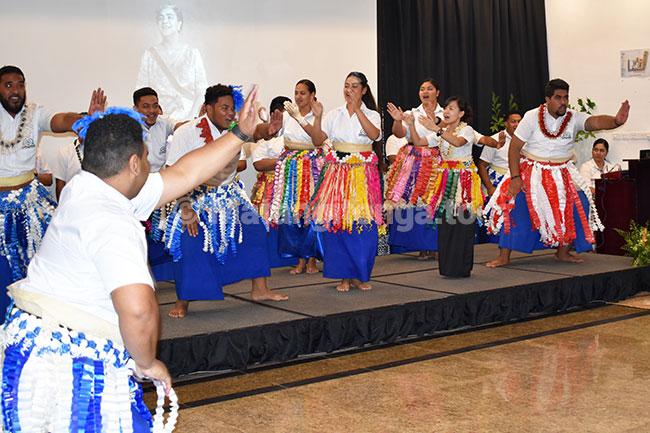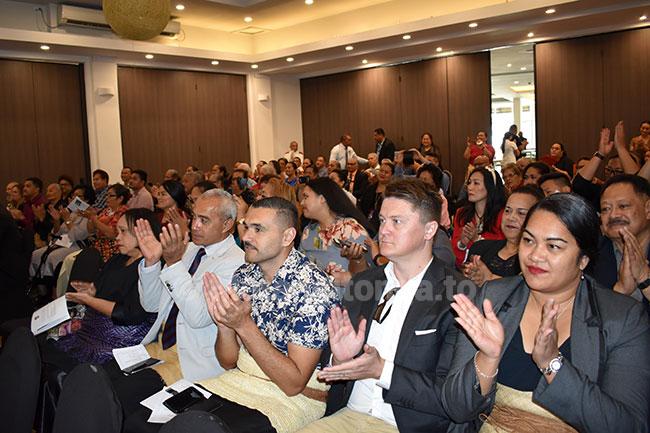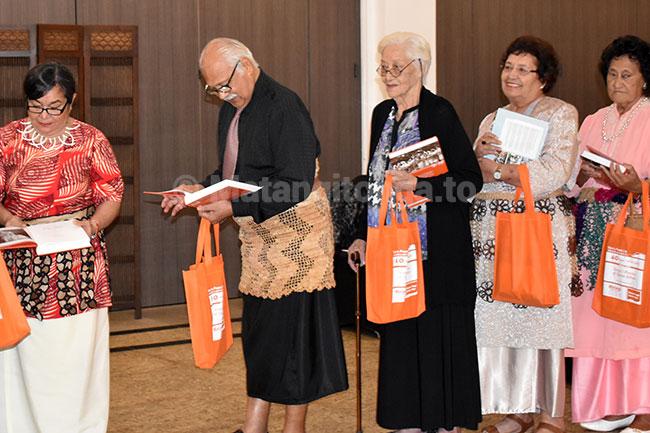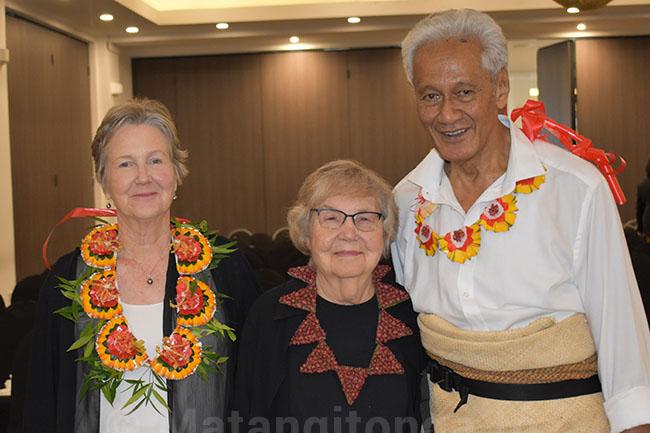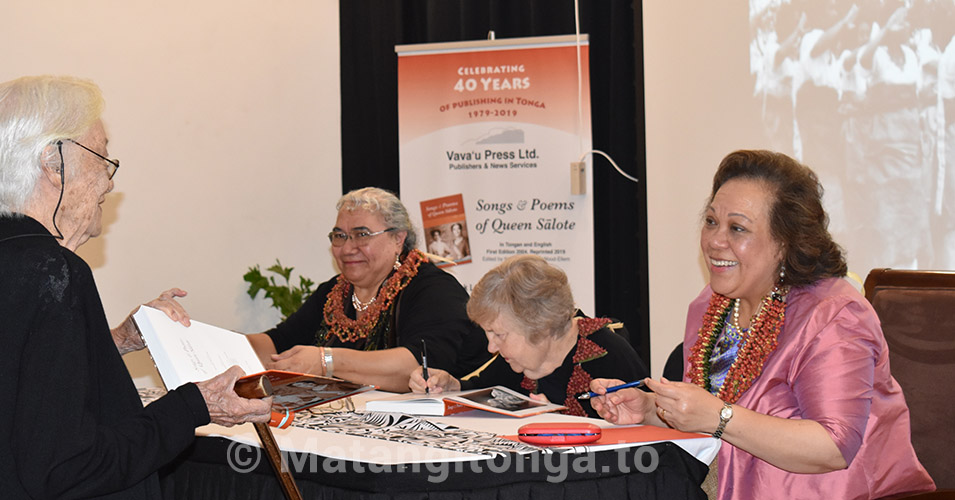
HM Queen Nanasipau’u gave a cultural presentation at the launching of the book Songs & Poems of Queen Sālote (Reprinted 2019, Vava'u Press) on September 10 in Nuku’alofa.
The book launch and book signing was held at the Tanoa Hotel as part of the celebration by Vava‘u Press (1979-2019) of their 40th year of Publishing in Tonga.
Songs & Poems of Queen Sālote, in Tongan and English, brings together in one volume the known artistic work of Queen Sālote, Tonga’s poet on the throne (1918-1965).
Queen Nanasipau‘u was one of three Presenters who offered different perspectives of the compositions of Queen Sālote, which form an important part of Tonga’s cultural heritage.
Queen Nanasipau‘u wrote an essay for the book, which was first published in 2004 and has been out of print for many years. She said that Queen Sālote’s compositions were special because they reveal the excellence, depth and beauty of the Tongan language. There are melodies and choreography that accompany the poetry. Queen Sālote's songs and poems have preserved the history, customs, and traditions of Tonga, and they can be used as a reference for genealogies.
In her presentation, 'Ko e Tukutukulaumea Fungani ‘a Kuini Sālote Ma‘a Tonga’ (Queen Sālote’s Enduring Gift to Tonga) Queen Nanasipau‘u spoke about the emotional impact of Queen Sālote's poetry.
Cultural preservation
Dr Adrienne L. Kaeppler, the Curator of Oceanic Ethnology at the National Museum of Natural History at the Smithsonian Institution Washington DC, gave her presentation on ‘Queen Salote’s Poetry as Works of Art, History, Politics and Culture.’
Adrienne explained why she, as a palangi, was involved in the preservation of Queen Salote's compositions. After Adrienne was invited by Queen Sālote in the 1960's to compile the work, she came to live in Tonga to complete her doctoral thesis. Adrienne, who has continued to visit Tonga over the last 60 years, researching social structure, dance, music and material culture, explained the importance of the Lakalaka for UNESCO's Masterpiece programme.
She also explained how the Presenters of the book Songs & Poems of Queen Sālote had gathered information with great difficulty, as the late Queen did not keep a notebook record of her compositions. The authoritative versions of the songs were kept in the oral tradition. Queen Sālote sent Adrienne to the composer Vaisima Hopoate and Tu‘imala Kaho to learn how to dance.
Adrienne said it was fortunate that some of the compositions had been recorded by the local radio station, in the way Queen Sālote wanted them to be performed, before the late queen made her final voyage to New Zealand.
The initial research for the book was done by Adrienne and the late Dr Elizabeth Wood-Ellem, the book editor. They later spent more years working with, the then, Princess Nanasipau‘u at the Palace archives. Adrienne said in the beginning they had no idea how many compositions they would eventually find and authenticate.
The 448 pages book, first published by Vava‘u Press in 2004, presents 114 compositions, including songs, lullabies, recitals, laments, drama, and Tonga’s great dances the Lakalaka and Ma‘ulu‘ulu, with over 170 illustrations.
Poet on the throne
Dr Melenaite Lolohea Taumoefolau, now a Senior lecturer in Pacific Studies at the University of Auckland, completed the line for line English translation of the Tongan compositions. It was the first time the work of Polynesia’s great composer became accessible to an English speaking audience.
In her presentation ‘Queen Sālote, Tonga’s Poet on the Throne’, Melenaite gave an analysis of Queen Sālote’s lament for ‘Ulukālala’s death in 1960. She explained how it is a Tongan custom to talk to the dead, so that others may know how they feel about the deceased.
The lament “Tutulu ‘a ‘Ene ‘Afio ‘i he Pekia ‘a Tangata ‘o Ha‘amea” uses the personal name of the chief whom the Queen appointed to both the ‘Ulukālala (1938) and Ata (1950) titles. “She chides him for not getting up to greet her.”
Melenaite, whose field is linguistics, read the poem.
Music students from the Tupou Tertiary Institute performed a medley of Queen Sālote’s songs with dance.
The first edition of the book Songs & Poems of Queen Sālote was published by Vava‘u Press in 2004. The 2019 reprint is available with a clamshell box, from Vava‘u Press Ltd., Vuna Road, Nuku‘alofa, or the Friendly Islands Bookshop in Nuku‘alofa.


